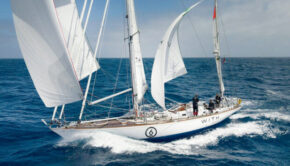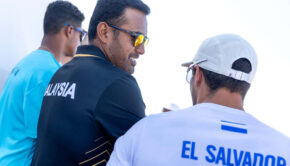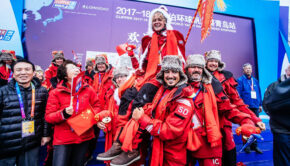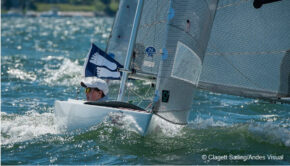Sleep deprivation and offshore sailing
Published on July 28th, 2020
Sleep deprivation and offshore sailing go hand in hand for navigators, and in particular for short-handed sailors. Yachting World’s Mike Broughton shares his top tips on dealing with a lack of sleep:
There’s no getting away from the fact that tiredness profoundly affects our performance. Sleep deprivation can severely degrade our decision-making abilities. The latest scientific research into sleep, such as brain scans carried out by leading neuroscientist and sleep specialist Professor Matthew Walker, has shown how we are more likely to make flawed decisions when tired, sometimes with big consequences.
The military use sleep deprivation in training and selection procedures and have been at the forefront of research into its effects. Sleep education was considered an unusual subject when I first learnt to fly in the Fleet Air Arm, but there are many times sleep deprivation has been shown to be a major factor in accidents and disasters, from the Exxon Valdez tanker grounding and oil spill, to the Chernobyl nuclear disaster, and the fatal Air France crash in 2009.
On a less cataclysmic scale, two of Britain’s best single-handed racers have grounded their yachts while leading their race. They won’t thank me for mentioning it, but Mike Golding had a huge lead in the Around Alone Race in 1999 before he grounded on New Zealand’s North Island while suffering from heavy sleep deprivation.
Meanwhile, in the last Route du Rhum, Alex Thomson had a 200-mile lead on the final approach to Guadeloupe. Unfortunately for Thomson, he slept through his sleep alarm and sailed Hugo Boss onto the rocks on the northern corner of the island and had to use his engine to extricate himself, incurring a penalty, which lost him the race win.
For sailors likely to experience sleep deprivation, understanding the different cycles of sleep is important, and can hopefully help mitigate mistakes. The cycles are categorized into Non- Rapid Eye Movement (NREM, both deep and light sleep) and the more active dreaming cycles of Rapid Eye Movement (REM). – Full story









 We’ll keep your information safe.
We’ll keep your information safe.